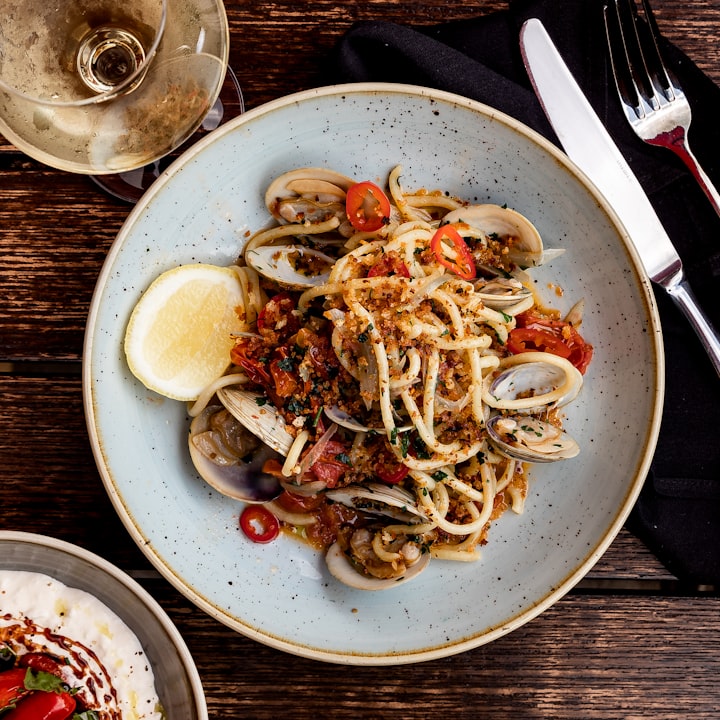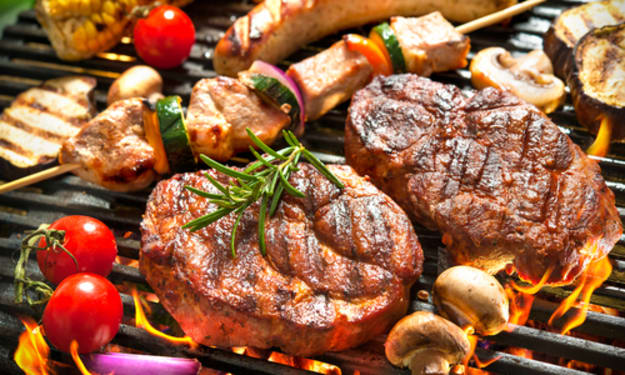How To Follow Your Beliefs for Success
Alice Waters' way of thinking and how it has influenced America and me.

It is always strange to write a biography of someone famous, but unknown. By me. I mean, yes, I know who the chef is, and I think I have a grasp of her beliefs around food, the table, and social responsibility. But, you know, we never met.
So I’ll have to get some info from the internet, not too dissimilarly to how you are finding the info, here, via me. But, I also believe that we’ll get to know her better through her philosophy. Not solely through the events of her life.
Still, I suppose it helps to put things into context.
Alice Louise Waters was born on April 28, 1944. She is a chef, entrepreneur, and author from the United States.
Alice earned a bachelor’s degree in French cultural studies from the University of California, Berkeley, in 1967. She also studied abroad in France, where she shopped for fresh, uncomplicated meals and cooked them.
She is the founder of Chez Panisse, a Berkeley, California, restaurant that is credited with starting the farm-to-table movement and pioneering California cuisine. She started the restaurant in 1971. The year my mami was born. Just saying.
Waters established the Chez Panisse Foundation in 1996, as well as the Edible Schoolyard initiative at Berkeley’s Martin Luther King Middle School. Michelle Obama’s White House organic vegetable garden initiative is said to have been motivated by her impact in the realms of organic foods and nutrition.
When Speaking About Her Ideas,
I do want and need thorough research. But mostly, I’ll write from the angle of what I learned during my time learning from her Masterclass.
It was so life=changing for me. And I know, it might sound like an exaggeration. But it isn’t. I was born and raised in Italy, where my family eats two meals a day all sitting together around the table. Where food that is not in season is something strange, and where sugar on peaches is a dessert as much as tiramisu. Sure, we do eat McDonald’s there too (even if not more than once a month, usually less), and have a dependence to Coca-Cola. But the relationship with food is different.
Since I moved back to my mother’s home country, Australia, I lost all of that. My mother hasn’t. But I did.
So now, I am rekindled to that genuine way of thinking about life, and the importance food, sharing, and produce have in our lives.
Alas! Let me get a start on Alice’s ideas.

Touching Things to Understand
She, Alice Waters, says that the most important kitchen tools are our own hands. Versatile, sure, but also tactile by definition. How else will we understand the freshness of lettuce, the softness of a peach, or the crunchiness of bread?
Then there is the action, the mindfulness. The flow that allows stream of consciousness to materialise in food.
And yes, I’m thinking of dough making: pizza (of course), pastry, and more.
She loves soaking her hands in the salad that is washing in a big bowl. And the bowls themselves have textures that ask to be touched; the same prayer is heard from the tools, the wood, the stone. But it’s also connection, isn’t it? The reminder that we are part of nature, not aside of it. But that we are also in the prestigious position of modifying things. The things we are also made of.
You might think I’m exaggerating, but I believe that this stuff is important. It’s spiritual (even when secular), psychological, physical.
The Seasons and The Peach
I was thinking that there must be a similar Premier Cru for peaches. There’s a terroir for peaches, where if the right varietals are planted in the right spots, they can be the greatest peaches of all — like a Suncrest peach in August from Mas Masumoto’s farm in the foothills of the Central Valley
Also, I can recall her saying, one must follow the rhythm of nature.
At Chez Panisse, there is a special item on the menu. A dessert. Or some may say, not a dessert. It’s a fruit bowl, an especially curated moment in time and season.
The emblem of terroir and season.
Possibly, this belief of seasonality as the only right way of consuming produce comes from her time in France. Or maybe not, and I think so because my quickness to adapt to this belief comes from my European upbringing.

It’s easy to see seasonal fruit as an antiquated concept as the streets of Pulsano, the town I come from. And, I do think I was lucky to also have a bit of an American/Australianised version of enjoying “bad food”, as it would be called in Italy. All is good, when taken in its right proportion. I do believe in all kinds of pleasure, but there is only one way of enjoying the pleasure of eating while being sustainable for both the earth and ourselves. And that’s eating following the rhythm of nature.
Peaches in summer. Oranges in winter. And above all, the strawberries of spring and the grapes of autumn. At least for me.
Education and Social Change
In 1998 Adam Gopnik wrote about Waters:
She believes in concentric circles of social responsibility, with the reformed carrot in the backyard garden insensibly improving the family around the dinner table, the reformed family around the dinner table insensibly improving the small neighborhood merchants they shop with, the reformed neighborhood merchants improving their city, and so right on, ever upward and outward, but with the reformed carrot always there, the unmoved (though crisply cooked) mover in the center.
Change can start from food, from our lifestyle around it. Among the various ways in which according to Alice Waters food can make a change, there are also the concepts of sustainability, organic, and slow food.
Let’s take slow food as an example.
We Are What We Eat: A Slow Food Manifesto is where you will find the ideas of slow food merging with Alice’s. Food is more than just food. Our way of eating changes or maintains us as our most individual self, but not only. It defines cultures, nations, people.
The same goes for “the dark side” of food (remember, Darth Vader said they had cookies there): fast and frozen food, speed, and mindlessness define not only the way we eat, but the way we operate as people and societies.
Slow food, a concept created by the Italian Carlo Petrini in 1986, revolves around pleasure, beauty, mindfulness, simplicity, as well as seasonality and sustainability. This is how food can change cultures, and help save the planet.
But how to use these teachings for the good of the planet? Teach kids, duh!
In a speech she made recently to teachers involved with the “garden in every school” project, in California, she pointed out that “all too many kids — both rich and poor — are disconnected from civilized and humane ways of living their lives,” and then added the Berkeley Basic Truth: “The sensual pleasure of eating beautiful food from the garden brings with it the moral satisfaction of doing the right thing for the planet and for yourself.”
The Edible Schoolyard Project was founded in 1995 by Alice Waters as a way to change the lunch culture starting from a public middle school in Berkeley. As the concept grew, a group of teachers, parents, farmers, chefs, and artists joined the initiative, collaborating closely with children to establish a thriving garden and culinary classroom. The beliefs of Alice Waters in regards to food and education are considered to have influenced one very remarkable person: Michelle Obama.
I might be naïve, sure, but I do wonder: why do schools not teach this stuff by default? Like, I get it, really, I do. History, maths, and languages are crucial for a good education. For stimulating the ever-expanding mind. But, so it’s agriculture. In its micro, simple yet fundamental way. Teaching kids about the difference between fast and slow food, for example. Seasonality, and what hurts vs helps the planet. With no agenda. Just knowledge, information that might be life-changing for so many kids and families. For nations.
All of these beliefs drove her incredible success
Gourmet magazine voted Chez Panisse the Best Restaurant in America in 2001. Restaurant magazine named it as one of the best 50 restaurants in the world from 2002 to 2008, and it was placed number 12 in 2003. From 2006 through 2009, Michelin granted the establishment a one-star distinction in its guide to San Francisco Bay Area dining, however the restaurant lost its star in 2010. Alice Waters was named one of the most important individuals in American food over the last 50 years when she received the Restaurant Magazine Lifetime Achievement Award in 2007.






Comments
There are no comments for this story
Be the first to respond and start the conversation.